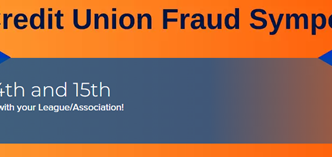Federal credit union members could have more options for short-term, small-dollar borrowing under a rule proposed today by the National Credit Union Administration Board.
The proposed rule would create one new product in addition to the current payday loan alternative that has been available to federally chartered credit unions since 2010. The Board also is requesting credit union stakeholders to comment on a possible third option.
“The Board’s goal is to help people of modest means by expanding access to safe and affordable short-term, small-dollar loans,” NCUA Board Chairman J. Mark McWatters said. “Federal credit unions have had a payday alternative loan option since 2010, which has been extremely effective. Now, we want to create additional opportunities.”
“Providing affordable credit and helping members build financial security is the very foundation of the credit union system,” NCUA Board Member Rick Metsger said. “Federal credit unions have, for eight years now, been able to offer an alternative to the kind of predatory lending that can entrap a borrower with astronomical interest rates and fees. The NCUA Board wants to give federal credit unions more tools to help their members, and we will keep members’ needs as well as safety and soundness uppermost in our minds as we proceed.”
Noting the recent statement from the Office of the Comptroller of the Currency encouraging federally insured financial institutions to offer “responsible short-term, small-dollar installment loans,” Chairman McWatters stressed the need for a regulatory structure giving those institutions a way to provide a loan product that is both fair to consumers and viable for lenders without sacrificing safety and soundness.
The Consumer Financial Protection Bureau in 2016 granted the existing payday alternative loan product a full exemption—known as a “safe harbor”—from its payday lending rules. Chairman McWatters and Board Member Metsger plan to ask the CFPB to extend that safe harbor exemption to the proposed new loan option.
During the fourth quarter of 2017, 503 federal credit unions reported making payday alternative loans under the NCUA’s current rules. At the end of the fourth quarter of 2017, federal credit unions held $38.6 million in payday alternative loans on their books.
The new payday alternative loan the NCUA Board is proposing has features to help federal credit unions meet specific needs of certain payday loan borrowers that are not met by the current program and provide those borrowers with a safer, less expensive alternative to traditional payday loans.
The proposed loan option includes most of the features of current payday alternative loan program, with four changes:
- Sets the maximum loan amount at $2,000 and eliminates the minimum loan amount.
- Sets the maximum term of the loan at 12 months.
- Does not require a minimum length of credit union membership.
- Does not include time a restriction on the number of loans a federal credit union may make to the borrower in a six-month period, provided the borrower has only one outstanding loan at a time.
Seeking comment on a possible third option, NCUA Board members are requesting public opinions on areas that include interest rates, maximum loan amounts, loan terms, and application fees.





